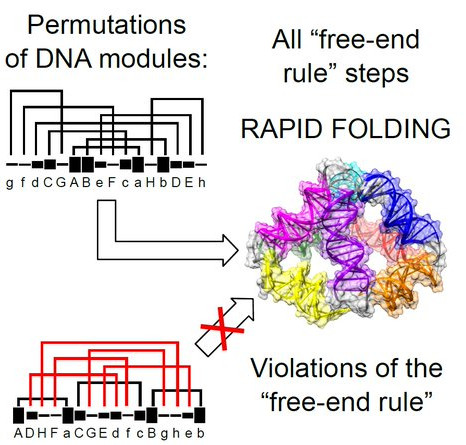|
|
Design principles for rapid folding of knotted DNA nanostructures
Vid Kočar, John S. Schreck, Slavko Čeru, Helena Gradišar, Nino Bašić, Tomaž Pisanski, Jonathan P.K. Doye, and Roman Jerala
Nat. Commun. 7, 10803 (2016)

Abstract
Knots are some of the most remarkable topological features in nature. Self-assembly of knotted polymers without breaking or forming covalent bonds is challenging, as the chain needs to be threaded through previously formed loops in an exactly defined order. Here we describe principles to guide the folding of highly knotted single-chain DNA nanostructures as demonstrated on a nano-sized square pyramid. Folding of knots is encoded by the arrangement of modules of different stability based on derived topological and kinetic rules. Among DNA designs composed of the same modules and encoding the same topology, only the one with the folding pathway designed according to the ‘free-end’ rule folds efficiently into the target structure. Besides high folding yield on slow annealing, this design also folds rapidly on temperature quenching and dilution from chemical denaturant. This strategy could be used to design folding of other knotted programmable polymers such as RNA or proteins.The full paper is available from Nature Communications.